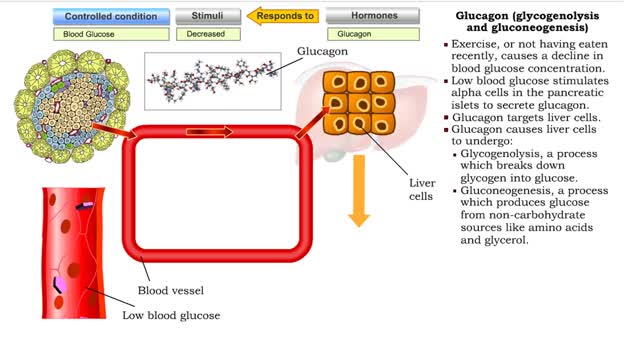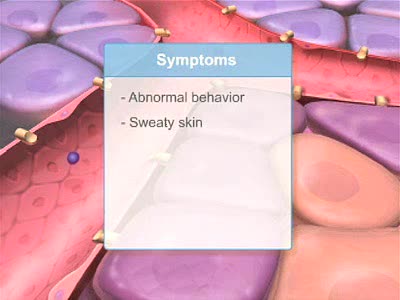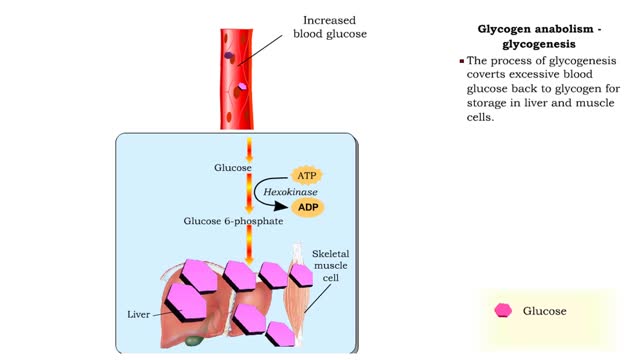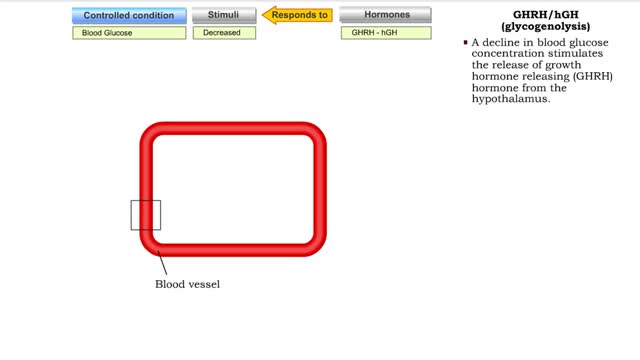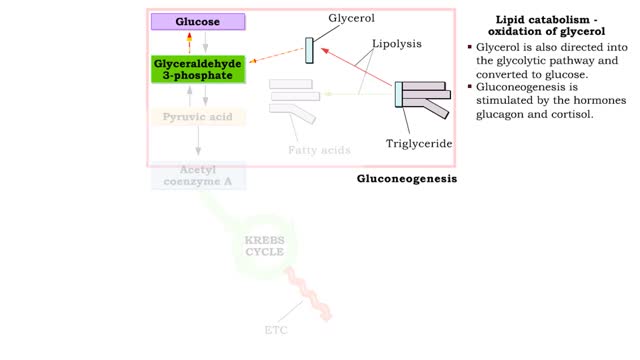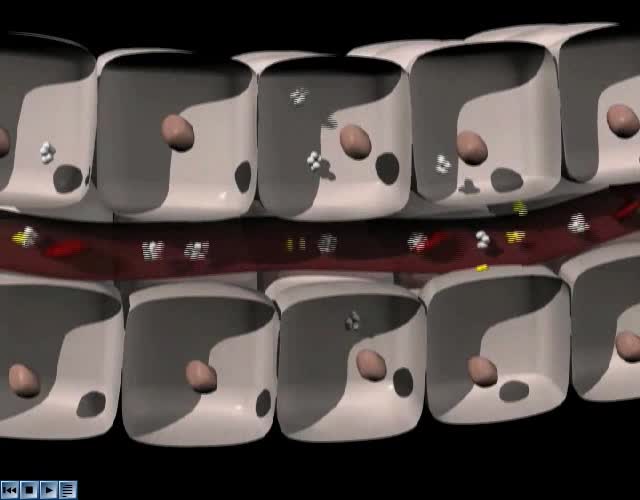Search Results
Results for: 'Glucagon'
Glucagon (glycogenolysis and gluconeogenesis)
By: HWC, Views: 11463
• Exercise, or not having eaten recently, causes a decline in blood glucose concentration. • Low blood glucose stimulates alpha cells in the pancreatic islets to secrete glucagon. • Glucagon targets liver cells. • Glucagon causes liver cells to undergo: • Glycogenolysis, a proce...
By: Administrator, Views: 16004
The islets of Langerhans are composed of three major types of cells: Alpha cells secrete glucagon, elevating blood sugar. Beta cells secrete insulin, maintaining normal blood sugar. Delta cells secrete somatostatin, which suppresses release of glucagon and insulin. Hyposecretion or inadequa...
Glucose anabolism reactions: Glycogenolysis and Gluconeogenesis
By: HWC, Views: 11992
• Glucose not needed immediately is stored as glycogen. The process that creates it is glycogenesis. • When ATP is needed for body activities, stored glycogen is broken down by a process called glycogenolysis. • Glucose can be formed through two different anabolic reactions: • Glycog...
Hormonal feedback loop components & Glucagon (glycogenolysis and gluconeogenesis)
By: HWC, Views: 11433
The endocrine system maintains many body conditions within normal limits with feedback loops. Each endocrine feedback loop maintains homeostasis using the following components: • Stimulus - a change in a body condition. • Production cell - an endocrine cell that produces a hormone after ...
Lipid catabolism ( ketogenesis and oxidation of glycerol) and Lipid anabolism (lipogenesis)
By: HWC, Views: 12013
• During excessive beta oxidation, the two-carbon fatty acid fragments are converted into acidic ketone bodies. • Ketosis, the overproduction of ketone bodies, can lead to acidosis (ketoacidosis) of the blood. • After lipolysis, glycerol is converted to pyruvic acid. • Pyruvic aci...
By: Administrator, Views: 16069
Hypoglycemia, also known as low blood sugar, is when blood sugar decreases to below normal levels. This may result in a variety of symptoms including clumsiness, trouble talking, confusion, loss of consciousness, seizures or death. A feeling of hunger, sweating, shakiness and weakness may also be...
Advertisement



